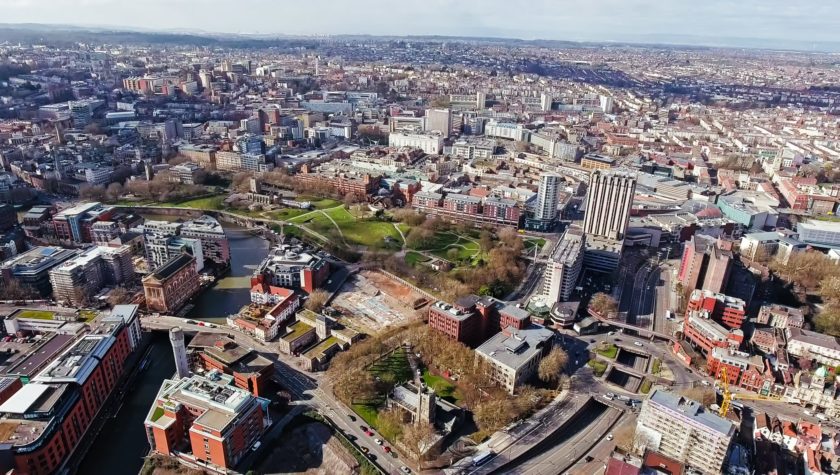Today five of England’s metro mayors and leaders from cities across the country have gathered in London to set aside their political differences and demand the Prime Minister puts more power into their hands.
The cross-party group is calling for further control over local transport and additional funding to help them transform connectivity in England’s urban centres, in line with recommendations in the National Infrastructure Assessment.
They have travelled to the capital for a Cities Summit organised by the Commission, along with a number of figures from regional and national business.
In a direct appeal to Mr Johnson, the five mayors said in a statement ahead of the event:
“As mayors, we are proud to represent cities and regions bursting with potential and we are working hard to deliver for our people. We have different politics and some of our regions are separated by hundreds of miles, yet we share a significant challenge.
“From North to South and everywhere in between, public transport is under strain, stifling growth and harming quality of life.
“Granting us more control over transport decisions alongside greater investment would give us the tools to transform connectivity and provide a more prosperous future for families and businesses.
“As the former Mayor of London, you know the power of devolution better than anyone. Now put your belief in our communities and hand over the keys to our destiny.”
In 2018 the Commission published the UK’s first-ever National Infrastructure Assessment, which recommends that Ministers give cities and regions greater autonomy over transport decisions and £43 billion of extra funding on top of current spending levels between now and 2040. This would enable the development and implementation of long-term strategies for public transport that unlock job opportunities and help to provide much-needed new homes.
The government has confirmed it will respond to the Commission’s recommendations through a National Infrastructure Strategy in the autumn.
Chairman of the National Infrastructure Commission, Sir John Armitt, said:
“Today we are seeing an unprecedented show of unity from cross-party politicians and the business community, who are demanding the certainty and funding to help them deliver game-changing connectivity.
“I encourage the Prime Minister to listen to their call and seize the chance for this to become his legacy in the forthcoming National Infrastructure Strategy.”
The Prime Minister signalled that his government would give greater powers to local leaders in a speech in Manchester three days after taking office, stating that “places need power and a sense of responsibility;” he went on to say that his government would “give more communities a greater say over changes to transport, housing, public services and infrastructure that will benefit their areas and drive local growth.”
Mayor of Greater Manchester Andy Burnham, said:
“Detached, London-centric decision making in Whitehall has had its day – it’s time to hand over the reins of power and let cities and regions define their own destinies. Our message to the Prime Minister is clear – the time has come for substantial devolution and funding to city regions to unlock our full potential. I’m proud to join Mayors from all over the country and different parties in making this call on the government today.”
Mayor of North of Tyne Jamie Driscoll, said:
“North of Tyne needs massive investment in public transport – our prosperity depends on it, and so does tackling the climate crisis. People need to travel cheaply and reliably to work and education, and yet we get a third of the spending London gets per person. We need the Northern Powerhouse promises to be fulfilled.”
Mayor of Cambridgeshire and Peterborough James Palmer, said:
“The innovation economy of Cambridgeshire and Peterborough is critical to sustained UK growth. We have been working with government to showcase how our ambitious transport and housing programmes can ensure that we remain thriving well into the 21st Century. I’m pleased to join with mayors across England to make the case for further powers and additional funding to upgrade our key infrastructure.”
Mayor of the Liverpool City Region Steve Rotheram, said:
“Whilst central government has been stuck in the Brexit mire, we have been delivering for our local communities on the things that matter to them – better jobs, better transport and better life opportunities. We need central government to give us real autonomy and collectively we can transform the lives of millions across the country.”
West of England Mayor Tim Bowles, said:
“Greater devolution powers will help us support communities across our towns and cities. Local people who live and work in the region are best placed to understand and respond to the challenges and opportunities that we face. We have ambitious plans for infrastructure in the West of England as set out in our Local Industrial Strategy, which we launched with government earlier this year. Therefore, we’re now calling on government for additional funding to deliver the infrastructure we need for clean and inclusive economic growth across our region.”
In addition to the city region mayors, other mayors and council leaders and senior representatives participated in the summit:
- Cllr Susan Hinchcliffe, Chair, West Yorkshire Combined Authority
- Cllr Chris Poulter, Leader, Derby City Council
- Cllr Andrea Davis, Cabinet Member for Infrastructure, Devon County Council
- Cllr Tony Ball, Cabinet Member for Economic Development, Essex County Council
- Cllr Philip Bialyk, Leader, Exeter City Council
- Colin Chick, Strategic Advisor (Infrastructure), Gloucestershire County Council
- Cllr Rob Humby, Executive Member for Transport, Hampshire County Council
- Sir Peter Soulsby, Mayor of Leicester
- Andy Abraham, Executive Mayor, Mansfield District Council
- Cllr Jonathan Nunn, Leader, Northampton Borough Council
- Cllr David Mellen, Leader, Nottingham City Council
- Cllr Susan Brown, Leader, Oxford City Council
- Cllr Ian Hudspeth, Leader, Oxfordshire County Council
- Cllr Gerald Vernon Jack, Leader, Portsmouth City Council
- Cllr David Clifford, Leader, Rushmore Borough Council
- Cllr James Swindlehurst, Leader, Slough Borough Council
- Cllr David Renard, Leader, Swindon Borough Council
- Cllr Louise Goldsmith, Leader, West Sussex County Council
The National Infrastructure Assessment recommended the government should set out devolved infrastructure budgets for individual English cities and £43bn of additional investment in urban transport by 2040 to unlock growth in cities. The Government has said it will formally respond to the Assessment recommendations in its National Infrastructure Strategy this autumn.
Read more about the Commission’s cities programme.




